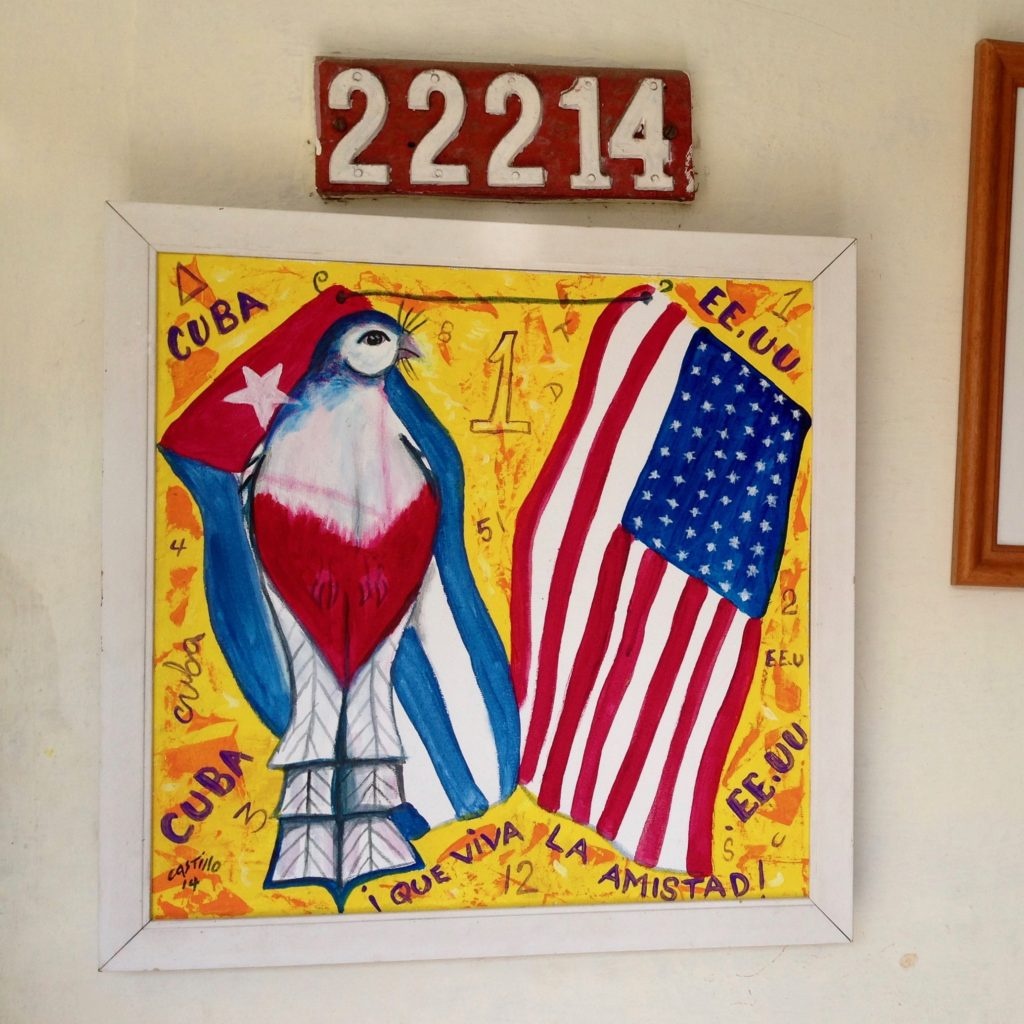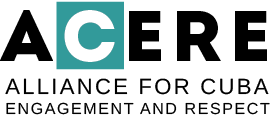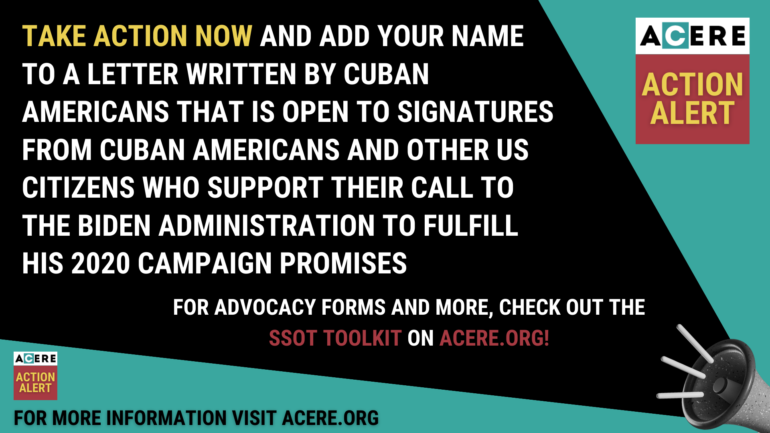
Take Action Now!
Dear Colleague Letter
Letter to Biden
Leer en español
Dear Colleague Letter
Dear Colleague,
We invite you to join us on a letter to President Biden on advancing a U.S. policy towards Cuba that addresses the humanitarian and economic crisis and restores a policy of engagement on areas of mutual concern.
It is important to pay close attention to developments in Cuba and uphold the rights of the Cuban people. It is also important for the U.S. to provide constructive solutions that concretely address the current crisis.
We hope you will join us on this timely initiative. If you require additional information or would like to join this letter, please contact Cindy Buhl (Rep. McGovern) at cindy.buhl@mail.house.gov; Gregory Adams (Rep. Lee) at gregory.adams@mail.house.
Letter to Biden
Dear President Biden:
We are writing to ask you to prioritize the well-being of the Cuban people, who are experiencing the worst economic and humanitarian crisis in recent history. The current humanitarian situation in Cuba is growing ever more dire, with shortages of food and goods and decreasing access to medical supplies amid the COVID-19 pandemic. We urge you to take immediate humanitarian actions – as the United Nations has urged repeatedly – to suspend U.S. regulations that prevent food, medicine, and other humanitarian assistance from reaching the Cuban people. We also support a more comprehensive shift to deepen engagement with Cuba and move towards normalization of U.S.-Cuba relations.
We urge your administration to remove the specific licenses required to send medical supplies, such as testing kits and respiratory devices, to Cuba. We also ask that the administration lift all restrictions on banking and financial transactions related to humanitarian aid and suspend end-use verification. While the embargo allows for the shipment of humanitarian aid, in practice, licensing requirements, end-use verification, restrictions on the banking sector, and fear of unknowingly running afoul of U.S. law severely complicate sending humanitarian aid to Cuba, from other countries as well as from the United States.
We ask you to remove all restrictions on family remittances, allowing Cuban Americans to help their families and improve their standard of living, and the restrictions on non-family (donative) remittances, allowing nonprofits and faith groups to provide humanitarian assistance and start-up capital for Cuban entrepreneurs and civil society. We are still waiting for action based on the recommendations from the Remittance Working Group you established in the wake of the July 11th protests, tasked with expediting a review withing 30 days of how to send remittances directly to the Cuban people. Despite concerns over Cuba’s government obtaining revenue from remittances, the government captures less revenue from remittances than in the past due to changes initiated in July 2020 and much of the government’s revenue from remittances is channeled to essential food, fuel, and goods imports for Cubans who do not have family abroad, many of them in marginalized communities. Moreover, the U.S. government does not restrict remittances to most of the countries targeted by U.S. sanctions, and just last month, your administration restarted the flow of remittances through Western Union to Afghanistan, showing you are aware of the importance that remittance channels have for countries facing humanitarian and economic crises.
We also urge you to roll back the Trump Administration’s restrictions on travel to Cuba, since they make it more difficult for Cuban Americans to visit and reunite with family on the island, particularly for those with families outside of Havana. These restrictions limit mutually beneficial dialogue and exchange between the U.S. and Cuban people. Travel restrictions have also harmed small private businesses, which have been unable to access needed goods and products and have struggled since tourism began to slow after such restrictions were put in place. Allowing travel to Cuba would increase the flow of necessary humanitarian supplies to the island and the amount and distribution of money and goods sent directly into the hands of Cubans.
Cuba was removed from the State Sponsor of Terrorism list in 2015 after an exhaustive review by experts at the State Department and in the intelligence community. The Trump Administration did not cite any new facts to justify its decision to relist Cuba during the last days of its term. Therefore, we ask you to recommend that the State Department conduct a new review and remove Cuba from the list. This designation places another roadblock in the path towards improved relations and creates further obstacles for purchasing or receiving humanitarian goods.
In addition to these immediate steps, we believe that a policy of engagement with Cuba serves U.S. interests and those of the Cuban people. It should lead to a more comprehensive effort to deepen engagement and normalization, including restarting diplomatic engagement at senior levels as well as through the re-staffing of each country’s respective embassies. This act would not only be a gesture of good faith but is in the best interests of the United States, assisting Cubans interested in migrating via legal means instead of contributing to conditions forcing Cubans to migrate under dangerous conditions, arriving in increased numbers at our southern border. Because the U.S. Embassy’s consular section has been closed to Cubans, the United States is in violation of the 1994 migration agreement signed with Cuba to end the last migration crisis.
Engagement on key areas of mutual interest that were pursued by the Obama–Biden Administration should be resumed, including bilateral groups on migration, disaster response, environment, and law enforcement issues such as counter-narcotics and money laundering. Cooperation on COVID-19 response and addressing future pandemics are also essential.
Finally, protecting human rights in Cuba, including the right to protest, is better served by principled engagement, rather than unilateral isolation, which has proven to be a failed policy. In fact, today, following almost five years of tightened U.S. sanctions, Cuba’s nascent social movements that emerged during the rapprochement years find their space for public debate and free expression more constrained than in 2016. Yet increased channels of communication and access to information via the internet and social media platforms in recent years, in large measure due to the policy of engagement pursued by the Obama-Biden Administration, have dramatically influenced how Cubans communicate and their levels of activism to influence decision making and mobilize and advocate for social causes. Engagement is more likely to enable the political, economic, and social openings that Cubans may desire, and to ease the hardships that Cubans face today.
We are eager to work with you to advance U.S.-Cuban relations and human rights and prosperity on the island. We look forward to your rapid implementation of these recommendations.
Leer en español
14 deciembre 2021
Estimado Presidente Biden:
Le escribimos para pedirle que dé prioridad al bienestar del pueblo cubano, que está atravesando por la peor crisis económica y humanitaria de su historia reciente. La situación humanitaria actual en Cuba es cada vez más grave, entre la escasez de alimentos y bienes y la disminución del acceso a suministros médicos en medio de la pandemia de COVID-19. Le instamos a que adopte medidas humanitarias inmediatas — como las Naciones Unidas han instado en repetidas ocasiones — para suspender las regulaciones estadounidenses que impiden que alimentos, medicinas y otra ayuda humanitaria lleguen al pueblo cubano. También apoyamos una política de compromiso diplomático con Cuba que permita avanzar hacia la normalización de las relaciones entre Estados Unidos y Cuba.
Instamos a su administración a eliminar las licencias específicas requeridas para enviar suministros médicos, como kits de pruebas de Covid-19 y dispositivos respiratorios, a Cuba. También pedimos que la administración levante todas las restricciones a las transacciones bancarias y financieras relacionadas con la ayuda humanitaria y suspenda la verificación del uso final. Aunque el embargo permite el envío de ayuda humanitaria, en la práctica, los requisitos de licencia, la verificación del uso final, las restricciones en el sector bancario y el miedo a incumplir la legislación estadounidense complican gravemente el envío de ayuda humanitaria a Cuba, tanto desde otros países como desde Estados Unidos.
Le pedimos que elimine todas las restricciones a las remesas familiares, permitiendo que los cubanoamericanos ayuden a sus familias y mejoren su nivel de vida, y las restricciones a las remesas no familiares (donativas), permitiendo que las organizaciones sin ánimo de lucro y los grupos religiosos proporcionen asistencia humanitaria y capital inicial para los empresarios cubanos y la sociedad civil. Seguimos esperando que se tomen medidas basadas en las recomendaciones del Grupo de Trabajo sobre Remesas que usted estableció tras las protestas del 11 de julio, encargado de acelerar la revisión, en un plazo de 30 días, de cómo enviar remesas directamente al pueblo cubano. A pesar de las preocupaciones sobre la acaparación por parte del gobierno cubano de gran parte de las remesas, actualmente el gobierno capta menos ingresos por remesas que en el pasado debido a los cambios iniciados en julio de 2020. Además, gran parte de los ingresos que el gobierno recibe a través de las remesas se destina a la importación de alimentos, combustible y bienes esenciales para los cubanos que no tienen familia en el extranjero, muchos de ellos en comunidades vulnerables . Por otra parte, el gobierno de Estados Unidos no restringe las remesas a la mayoría de los países objeto de las sanciones estadounidenses. Suu administración reanudó el flujo de remesas a través de Western Union a Afganistán y desde la semana pasada permite remesas personales y familiares a través de instituciones financieras, lo que demuestra que es consciente de la importancia que tienen los canales de remesas para los países que se enfrentan a crisis humanitarias y económicas.
También le instamos a que revoque las restricciones de la Administración Trump a los viajes a Cuba, ya que dificultan que los cubanoamericanos visiten y se reúnan con sus familiares en la isla, en particular los que tienen familia fuera de La Habana. Estas restricciones limitan el diálogo y el intercambio mutuamente beneficioso entre los pueblos estadounidense y cubano. Las restricciones a los viajes también han perjudicado a las pequeñas empresas privadas, que no han podido acceder a los bienes y productos necesarios, y que ya se veían afectadas por la disminución del turismo tras la aplicación de dichas restricciones. Permitir los viajes a Cuba aumentaría el flujo de suministros humanitarios necesarios para la isla y la cantidad y distribución de dinero y bienes enviados directamente a las manos de los cubanos.
Cuba fue retirada de la lista de Estados Patrocinadores del Terrorismo en 2015 tras una exhaustiva revisión por parte de expertos del Departamento de Estado y de la comunidad de inteligencia. La Administración Trump no citó ningún hecho nuevo para justificar su decisión de volver a incluir a Cuba en la lista durante los últimos días de su mandato. Por lo tanto, le pedimos que recomiende que el Departamento de Estado realice una nueva revisión y elimine a Cuba de la lista. Esta designación pone otro obstáculo en el camino hacia la mejora de las relaciones y crea más obstáculos para comprar o recibir bienes humanitarios.
Además de estas medidas inmediatas, creemos que una política de acercamiento con Cuba sirve a los intereses de Estados Unidos y del pueblo cubano. Debería conducir a un esfuerzo más amplio hacia la normalización de las relaciones entre ambos países, incluyendo el restablecimiento de diálogo diplomático a niveles superiores, así como la reposición del personal de las respectivas embajadas. Este acto no sólo sería un gesto de buena fe, sino que redundaría en beneficio de los Estados Unidos, ayudando a los cubanos a emigrar por medios legales en lugar de contribuir a las condiciones que los obligan a emigrar en condiciones peligrosas, llegando en mayor número por mar. Debido a que la sección consular de la Embajada de Estados Unidos ha sido cerrada a los cubanos, Estados Unidos está violando el acuerdo migratorio de 1994 firmado con Cuba para poner fin a la precedente crisis migratoria.
Debe reanudarse el intercambio en áreas clave de interés mutuo que fueron perseguidas por la Administración Obama-Biden, incluyendo los diálogos bilaterales sobre migración, respuesta a desastres, medio ambiente, y cooperación policial en temas de narcotráfico y el blanqueo de dinero. También es esencial la cooperación en la respuesta al COVID-19 y de futuras pandemias.
Por último, la protección de los derechos humanos en Cuba, incluido el derecho a la protesta, se consigue mejor con un compromiso diplomático que con el aislamiento unilateral, que ha demostrado ser una política fallida. De hecho, hoy en día, tras casi cinco años de sanciones reforzadas por parte de Estados Unidos, los nacientes movimientos sociales cubanos, que surgieron durante los años del acercamiento, ven su espacio para el debate público y la libre expresión más restringido que en 2016. Sin embargo, el aumento de los canales de comunicación y el acceso a la información a través de Internet y las plataformas de medios sociales en los últimos años, en gran medida debido al proceso de normalización de las relaciones empezado por la Administración Obama-Biden, han influido drásticamente en la forma en que los cubanos se comunican y en sus niveles de activismo para influir en la toma de decisiones y movilizar y defender las causas sociales. Es más probable que el compromiso diplomático permita las aperturas políticas, económicas y sociales que los cubanos pueden desear, y que alivie las dificultades que los cubanos enfrentan hoy en día.
Estamos deseosos de trabajar con usted para avanzar las relaciones entre Estados Unidos y Cuba, así como los derechos humanos y la prosperidad en la isla. Esperamos que ejecute rápidamente estas recomendaciones.
Sinceramente,
James P. McGovern (MA) – co-lead, Rules Committee Chair
Barbara Lee (CA) – co-lead, SFOPS SC Appropriations Chair
Gregory W. Meeks (NY) – co-lead, HFAC Chair
Bobby L. Rush (IL) – co-lead, Energy SC Chair, E&C
Nydia M. Velázquez (NY)
Eleanor Holmes Norton (DC)
André Carson (IN)
Steve Cohen (TN)
Peter Welch (VT)
Dwight Evans (PA)
Andy Levin (MI)
Jake Auchincloss (MA)
Henry C. “Hank” Johnson, Jr. (GA-04)
Rashida Tlaib (MI)
Mike Doyle (PA)
Raúl M. Grijalva (AZ)
Jared Huffman (CA)
Jan Schakowsky (IL)
Alan B. Lowenthal (CA)
Donald M. Payne, Jr. (NJ)
Anna G. Eshoo (CA)
Adriano Espaillat (NY)
Grace Meng (NY)
Ayanna Pressley (MA)
Dina Titus (NV)
Mark DeSaulnier (CA)
Betty McCollum (MN)
Bennie G. Thompson (MS)
Carolyn B. Maloney (NY-12)
Maxine Waters (CA)
Dean Phillips (MN)
Mondaire Jones (NY)
Ron Kind (WI)
Chellie Pingree (ME)
Joaquin Castro (TX)
David Trone (MD)
John Garamendi (CA)
Earl Blumenauer (OR)
Donald S. Beyer, Jr. (VA)
John A. Yarmuth (KY)
Stephen F. Lynch (MA)
Jim Himes (CT)
Mark Pocan (WI)
Danny K. Davis (IL)
Peter A. DeFazio (OR)
David N. Cicilline (RI)
Suzanne Bonamici (OR)
Karen Bass (CA)
David E. Price (NC)
Jamie Raskin (MD)
Robin L. Kelly (IL)
Gwen Moore (WI)
Brenda L. Lawrence (MI)
Zoe Lofgren (CA)
Ro Khanna (CA)
Ilhan Omar (MN)
Ted Lieu (CA)
Pramila Jayapal (WA)
Alexandria Ocasio-Cortez (NY)
Sara Jacobs (CA)
Jamaal Bowman (NY)
Jerry McNerney (CA)
Melanie Stansbury (NM)
Anthony G. Brown (MD)
Mark Takano (CA)
Jerrold Nadler (NY)
Emanuel Cleaver, II (MO)
Paul D. Tonko (NY)
Daniel T. Kildee (MI)
John B. Larson (CT)
Diana DeGette (CO)
Rosa L. DeLauro (CT)
Sheila Jackson-Lee (TX)
Cori Bush (MO)
Jesús G. “Chuy” García (IL)
Ed Perlmutter (CO)
Deborah K. Ross (NC)
David Scott (GA)
Mike Thompson (CA)
Doris O. Matsui (CA)
Eddie Bernice Johnson (TX)
Rick Larsen (WA)
Bonnie Watson Coleman (NJ)
Adam Smith (WA)
Jackie Speier (CA)
Ami Bera, M.D. (CA)
Al Green (TX)
Linda T. Sánchez (CA)
Debbie Dingell (MI)
Ann Kirkpatrick (AZ)
Teresa Leger Fernández (NM)
Judy Chu (CA)
Lori Trahan (MA)
Sanford D. Bishop, Jr. (GA)
Nikema Williams (GA)
Marilyn Strickland (WA)
Marie Newman (IL)
Kweisi Mfume (MD)
Juan Vargas (CA)
Lucille Roybal-Allard (CA)
Jahana Hayes (CT)
Katie Porter (CA)
Grace F. Napolitano (CA)
Nanette Diaz Barragán (CA)
Jimmy Panetta (CA)
Colin Z. Allred (TX)
Veronica Escobar (TX)
Alma S. Adams, Ph.D. (NC)
Jimmy Gomez (CA)
Marc A. Veasey (TX)
Eric Swalwell (CA)
- K. Butterfield (NC)
Sean Casten (IL)
Robert C. “Bobby” Scott (VA)
(114)




7 Comments
Kathy Bartolomeo
Please move forward in helping all people.
Rodger Scott
Now is the time to resume ties with Cuba. The leaders and people of Cuba deserve our respect and good will. I appreciate and support the enlightened and humane efforts of the three patriotic members of Congress.
Sincerely,
Rodger Scott, Ph.D.
Yolanda Gonzalez
My name is Yolanda and I’m a constituent New York City. Cuba is currently facing the worst economic crisis the island has seen in recent history. Food shortages, long lines, and a lack of medical supplies to combat the COVID-19 pandemic have exacerbated the suffering of Cubans on the island and of their families in the United States who are desperate to help but often unable to because of US sanctions. I traveled in November 2019 and saw firsthand the devastating effects, I can only imagine the current state.
doug shaeffer
stop bullying cuba and other countries and destroying the environment for everyone.
Arlene Tolopko
Hands off Cuba! End the blockade and sanctions. Cuba is no threat to the US.
Iris Edinger
Let’s normalize relations with Cuba.
Sherrill Futrell
I WAS IN CUBA IN 2019 ON A DIVE TRIP AND COULD NOT BELIEVE HOW THIN THE PEOPLE WERE. I SAW NO ONE, EVEN KIDS, PLUMP. I’M SICKENED TO KNOW THAT I’M ONE OF THE 300 MILLION FOREIGNERS WHO’VE IMPOSED AN EVIL EMBARGO ON THEM FOR DECADES. THIS U.S. POLICY HAS BEEN IMPOSED BY COWARDLY POLITICIANS AFRAID OF RIGHT-WING CUBAN IMMIGRANTS WHO’VE TAKEN OVER FLORIDA. IT’S TIME FOR THE EVIL EMPIRE TO CHANGE.
Comments are closed.